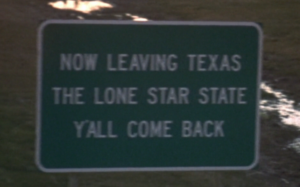 A significant challenge in professional liability cases involving litigation is proving the “case in a case” – what the outcome should have been in the relevant lawsuit, absent the alleged malpractice. In Haddock v. Gruber, the Fifth Court addressed the collateral estoppel effect of an earlier judgment in a complex series of cases, concluding that it precluded the proof of the necessary “case in a case.” The opinion addresses both the elements of collateral estoppel in this context and several policy-based attacks on the use of the doctrine in this setting. No. 05-16-1113-CV (March 22, 2018) (mem. op.)
A significant challenge in professional liability cases involving litigation is proving the “case in a case” – what the outcome should have been in the relevant lawsuit, absent the alleged malpractice. In Haddock v. Gruber, the Fifth Court addressed the collateral estoppel effect of an earlier judgment in a complex series of cases, concluding that it precluded the proof of the necessary “case in a case.” The opinion addresses both the elements of collateral estoppel in this context and several policy-based attacks on the use of the doctrine in this setting. No. 05-16-1113-CV (March 22, 2018) (mem. op.)
Monthly Archives: March 2018
 In a dispute about alleged undue influence on a Texas-based testator, in the context of evaluating the totality of the defendants’ contacts with Texas, the Fifth Court identified several Texas contacts that will not ordinarily establish personal jurisdiction:
In a dispute about alleged undue influence on a Texas-based testator, in the context of evaluating the totality of the defendants’ contacts with Texas, the Fifth Court identified several Texas contacts that will not ordinarily establish personal jurisdiction:
- Written communications in Texas, and personal visits to Texas, when no evidence “establishes what was said in any particular disputed conversation”;
- Simply being named in estate planning documents in a contingent position, when “none of those contingency appointments ever occurred” so the party “did not accept any benefits or obligations or take any action in any of these capacities”; and
- For alter ego, simply the “[f]ailure to observe corporate formalities” or the owner’s “taking a draw” from the company.
Karaa v. Aramoonie, No. 05-17-00571-CV (March 19, 2018).
 The case of Starwood Management v. Swaim returned to the Fifth Court, after a reversal and remand by the Texas Supreme Court. The previous Fifth Court opinion affirmed a defense summary judgment, finding that the affidavits of the plaintiffs’ causation experts in a legal malpractice were conclusory. The Texas Supreme Court held otherwise. Against that backdrop, on remand, the Fifth Court found that the affidavits were not “speculative” (a concept arguably distinct from being “conclusory”) and was relevant, and reversed the summary judgment that had resulted from these rulings and the one addressed by the supreme court. No. 05-14-01218-CV (March 20, 2018) (mem. op.)
The case of Starwood Management v. Swaim returned to the Fifth Court, after a reversal and remand by the Texas Supreme Court. The previous Fifth Court opinion affirmed a defense summary judgment, finding that the affidavits of the plaintiffs’ causation experts in a legal malpractice were conclusory. The Texas Supreme Court held otherwise. Against that backdrop, on remand, the Fifth Court found that the affidavits were not “speculative” (a concept arguably distinct from being “conclusory”) and was relevant, and reversed the summary judgment that had resulted from these rulings and the one addressed by the supreme court. No. 05-14-01218-CV (March 20, 2018) (mem. op.)
 The Fifth Court reversed and rendered default judgment for the plaintiff in a case about an allegedly stolen 2007 Bentley. As for liability, the opinion recites a useful set of deemed admissions for such a case, that could readily be adapted to other conversion-type claims. As for damages, while the plaintiff’s affidavit was found to be conclusory: “[E]videnc of the price paid may be offered as proof of the property’s fair market value. The undisputed evidence established that Swarovski paid Enger $75,500 for the Bentley on September 21, 2013, only three months before Enger took the car. [And i]n deemed admissions, Enger admitted he accepted Swarovski’s $75,500 check as full payment for the Bentley and deposited the check into his account. Thus, the undisputed evidence established that Swarovski’s damages resulting from the theft totaled $79,249.70, which includes the cost of the [car’s] rims and insurance payments.” Swarovski v. Enger, No. 05-17-00398-CV (March 16, 2018) (mem. op.)
The Fifth Court reversed and rendered default judgment for the plaintiff in a case about an allegedly stolen 2007 Bentley. As for liability, the opinion recites a useful set of deemed admissions for such a case, that could readily be adapted to other conversion-type claims. As for damages, while the plaintiff’s affidavit was found to be conclusory: “[E]videnc of the price paid may be offered as proof of the property’s fair market value. The undisputed evidence established that Swarovski paid Enger $75,500 for the Bentley on September 21, 2013, only three months before Enger took the car. [And i]n deemed admissions, Enger admitted he accepted Swarovski’s $75,500 check as full payment for the Bentley and deposited the check into his account. Thus, the undisputed evidence established that Swarovski’s damages resulting from the theft totaled $79,249.70, which includes the cost of the [car’s] rims and insurance payments.” Swarovski v. Enger, No. 05-17-00398-CV (March 16, 2018) (mem. op.)
 Confusion over which entity named “Whoa” received a property conveyance led to an argument that capacity had not properly been pleaded as a defense under Tex. R. Civ. P. 93. The Fifth Circuit disagreed with the appellants’ position: “[T]he case before us does not involve a party’s contention that its opponent is not a proper party or that a claim filed by its opponent belongs to another. . . . Further, the record does not show [Appellees] challenged Whoa’s ‘authority’ respecting its claim.” Whoa USA, Inc. v. Regan Properties, LLC, No. 05-16-01283-CV (March 12, 2018) (mem. op.)
Confusion over which entity named “Whoa” received a property conveyance led to an argument that capacity had not properly been pleaded as a defense under Tex. R. Civ. P. 93. The Fifth Circuit disagreed with the appellants’ position: “[T]he case before us does not involve a party’s contention that its opponent is not a proper party or that a claim filed by its opponent belongs to another. . . . Further, the record does not show [Appellees] challenged Whoa’s ‘authority’ respecting its claim.” Whoa USA, Inc. v. Regan Properties, LLC, No. 05-16-01283-CV (March 12, 2018) (mem. op.)
 The parties’ arbitration clause said that, after a three-arbitrator panel was selected, the arbitrators “shall hold a hearing and make an award within sixty (60) days of the filing for arbitration.” The panel issued a “Partial Final Award” within sixty days and a complete award later; the trial court found the final award was untimely and declined to confirm it. The Fifth Court found that the agreement only required “an award,” not a final award, and that the arbitration panel had the last word on the issue because the parties had incorporated AAA ruled, which give “[t]he arbitrator . . . the power to rule on his or her own jurisdiction . . . ” Signature Pharmaceuticals LLC v. Ranbaxy, Inc., No. 05-17-00412-CV (March 12, 2018) (mem. op.)
The parties’ arbitration clause said that, after a three-arbitrator panel was selected, the arbitrators “shall hold a hearing and make an award within sixty (60) days of the filing for arbitration.” The panel issued a “Partial Final Award” within sixty days and a complete award later; the trial court found the final award was untimely and declined to confirm it. The Fifth Court found that the agreement only required “an award,” not a final award, and that the arbitration panel had the last word on the issue because the parties had incorporated AAA ruled, which give “[t]he arbitrator . . . the power to rule on his or her own jurisdiction . . . ” Signature Pharmaceuticals LLC v. Ranbaxy, Inc., No. 05-17-00412-CV (March 12, 2018) (mem. op.)
 The plaintiffs in Sky Group LLC v. Vega Street I, LLC sued for conversion, and showed in their motion for summary judgment that they “contracted with Sky Group for property management services and, in the course of those services, Sky Group acquired possession of funds, documents, and keys belonging to [them]. After [they] terminated the contract, they demanded the return of the property, but the property was not returned.” Unfortunately, however, “[t]he mere failure by the defendant to deliver the property after a demand is generally not sufficient to prove an affirmative refusal. To be liable for conversion, a person must intend to assert some right in the property.” (citations omitted). The Fifth Court thus reversed summary judgment on this claim, along with several other related business tort claims. No. 05-17-00161-CV (March 5, 2018) (mem. op.)
The plaintiffs in Sky Group LLC v. Vega Street I, LLC sued for conversion, and showed in their motion for summary judgment that they “contracted with Sky Group for property management services and, in the course of those services, Sky Group acquired possession of funds, documents, and keys belonging to [them]. After [they] terminated the contract, they demanded the return of the property, but the property was not returned.” Unfortunately, however, “[t]he mere failure by the defendant to deliver the property after a demand is generally not sufficient to prove an affirmative refusal. To be liable for conversion, a person must intend to assert some right in the property.” (citations omitted). The Fifth Court thus reversed summary judgment on this claim, along with several other related business tort claims. No. 05-17-00161-CV (March 5, 2018) (mem. op.)
 After a hearing on your special appearance, the judge says “Denied.” Can you appeal? No: “An oral rendition is not sufficient. The appellate timetable runs from the date an appealable written judgment or order is signed. See TEX. R. APP. P. 26.1; Farmer v. Ben E. Keith Co., 907 S.W.2d 495, 496 (Tex. 1995).” Effel v. Rosberg, No. 05-17-01332-CV (March 6, 2018) (mem. op.)
After a hearing on your special appearance, the judge says “Denied.” Can you appeal? No: “An oral rendition is not sufficient. The appellate timetable runs from the date an appealable written judgment or order is signed. See TEX. R. APP. P. 26.1; Farmer v. Ben E. Keith Co., 907 S.W.2d 495, 496 (Tex. 1995).” Effel v. Rosberg, No. 05-17-01332-CV (March 6, 2018) (mem. op.)
 The primary results are in, and the November ballot for the eight open slots on the Fifth Court will be as follows. (The Texas Lawbook recently analyzed the election and the unusually large number of contested seats).
The primary results are in, and the November ballot for the eight open slots on the Fifth Court will be as follows. (The Texas Lawbook recently analyzed the election and the unusually large number of contested seats).
Chief Justice: Doug Lang (R) v. Robert Burns (D)
Place 2: David Evans (R) v. Robbie Partida-Kipness (D)
Place 5: Craig Stoddart (R) v. Erin Nowell (D)
Place 9: Jason Boatright (R) v. Bill Pedersen (D)
Place 10: Molly Francis (R) v. Amanda Reichek (D)
Place 11:John Browning (R) v. Cory Carlyle (D)
Place 12: Winner of runoff between Jim Pikl and William “Randy” Johnson (R) v. Ken Molberg (D)
Place 13: Elizabeth Lang-Miers (R) v. Leslie Lester Osborne (D)
 As a counterpoint to its recent discovery-limiting opinion in In re: Hanover Lloyds, the Fifth Court recently addressed three dimensions of discovery requests in a suit against the NCAA about head injuries, concluding:
As a counterpoint to its recent discovery-limiting opinion in In re: Hanover Lloyds, the Fifth Court recently addressed three dimensions of discovery requests in a suit against the NCAA about head injuries, concluding:
- Requests about other types of head injuries were overly broad, especially given the NCAA’s commitment to search for documents about “concussive and sub-concussive blows to the head” without limiting its search to those precise terms;
- The 50-year scope of discovery was reasonable in light of the types of injuries alleged and the issues about the NCAA’s awareness of them;
- Information about other sports was also discoverbale, as the issue was the NCAA’s awareness about the type of head injury in question – “. . . the injury, not the sport, is the proper inquiry.”
In re: NCAA, No. 05-17-00951-CV (March 1, 2018).
 Continuing to provide practical guidance about discovery requests (see In re: Sting Soccer Group, 2017), and applying the recent Texas Supreme Court cases about discovery of information about other claims, in the context of a dispute over one claim (see In re: Nat’l Lloyds I, 449 S.W.3d 486 (Tex. 2014), and In re: Nat’l Lloyds II, 507 S.W.3d 219 (Tex. 2016)), the Fifth Court addressed these discovery requests in an insurance claim dispute:
Continuing to provide practical guidance about discovery requests (see In re: Sting Soccer Group, 2017), and applying the recent Texas Supreme Court cases about discovery of information about other claims, in the context of a dispute over one claim (see In re: Nat’l Lloyds I, 449 S.W.3d 486 (Tex. 2014), and In re: Nat’l Lloyds II, 507 S.W.3d 219 (Tex. 2016)), the Fifth Court addressed these discovery requests in an insurance claim dispute:
(1) the last twenty-five Haag Engineering reports on a storm damage claim in Texas for one of its insureds that Hanover Lloyds Insurance Company had received before August 31, 2015 (the date of its decision letter in this case) plus the decision letters in those claims. . . .
(2) the last twenty-five Haag Engineering reports on a storm damage claim in Texas for one of its insureds that Hanover Lloyds Insurance Company had received after August 31, 2015 (the date of its decision letter in this case) plus the decision letters in those claims.
It granted mandamus relief against an order to respond to them, reasoning: “[A]ccording to Indoor Sports, it is seeking the information to develop and prove the relationship between Hanover and HAAG, Hanover’s reliance on HAAG’s training, investigation and reports, and the unreasonableness of the investigation and decision made by Hanover in light of the HAAG report and lack of contradictory evidence. Although there is a remote possibility the requested discovery could lead to the discovery of relevant evidence, we fail to see how Hanover’s use of HAAG engineering reports on claims of unrelated third parties is probative of Hanover’s conduct with respect to its handling of this claim.” In re: Hanover Lloyds, No. 05-17-00608-CV (March 2, 2018) (mem. op.)
 Archimedes famously said about the lever: “Give me a place to stand and I shall move the world!” Similarly, in review of a mandamus petition about enforcement of a foreign selection clause, the respondent only needs one place to stand: “The trial court denied the motion to dismiss and denied relators’ motion for reconsideration without stating on which grounds it denied the motions. In their petition for writ of mandamus, relators address only six of the seven grounds raised by the real party in interest below. When an appellant fails to attack one of the possible grounds on which a judgment was granted, the judgment must be affirmed.In re Baker, No. 05-17-01320-CV (Feb. 28, 2018) (mem. op.)
Archimedes famously said about the lever: “Give me a place to stand and I shall move the world!” Similarly, in review of a mandamus petition about enforcement of a foreign selection clause, the respondent only needs one place to stand: “The trial court denied the motion to dismiss and denied relators’ motion for reconsideration without stating on which grounds it denied the motions. In their petition for writ of mandamus, relators address only six of the seven grounds raised by the real party in interest below. When an appellant fails to attack one of the possible grounds on which a judgment was granted, the judgment must be affirmed.In re Baker, No. 05-17-01320-CV (Feb. 28, 2018) (mem. op.)